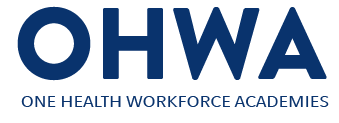Principles of Environmental Health
1.) Please select Network:
AFROHUN
2.) AFROHUN – Please select OHUN or Country:
ETHIOPIA
2.1) ETHIOPIA – Please select a University:
Jimma University, College of Public Health and Medical Science
3. What is the specific title of the One Health training and empowerment activity?:
Principles of Environmental Health
4. What is the code number associated with this activity (i.e.in the University’s Catalogue used to enroll in the activity)?:
EnH501
5. Trainee Workload: What are the number of credits or units awarded for completion of the training activity?:
2
6. Who is the target audience (types of trainees) for this One Health training and Empowerment activity?:
Master’s Degree
Other (Please specify)
6.1 Please Specify:
students registered for Masters degree in environmental health
7. Learning Objective: What are the One Health Competency domains presented for this training and empowerment activity?:
Ecosystem Health
Environment and One Health
8. Learning Outcomes: What is the Expected level of Competence for Trainees who complete the One Health training and empowerment activity?:
Advanced
9. What is the method of delivery of the training activity (Engagement of trainees)?:
In-person learning
Other (specify)
9.1 Please Specify:
The general teaching methods for this MSc program in Environmental Health is more of practical and student centred. The minimum attachment will be the lecturing system with frequent seminars which will be handled independently by students. There will be more laboratory and experimental field works according to the need of the specific course. Students will have an opportunity of eLearning through the university’s platform. In addition modular systems and professional attachments to different actual workings, the community based teaching strategies (CBTP and DTTP) will be also implemented.
10. Curriculum Design: Is the training activity designed to deliver knowledge of One Health topics or is the emphasis on the level of competencies, or both?:
Content-driven: The syllabus is designed around specific topics that allows a learner to master a specific subject area
11. What Teaching Strategies are used?:
Blended learning (a combination of in-class and virtual instruction)
Flipped Classroom (e.g. materials, lecture or video reviewed before in-person class time- while the in-person class time is devoted to exercises, projects, and discussion)
12. What is the period of time allocated to the training and empowerment activity?:
One Academic Semester (4 months)
13. What is the period of time expected for the instructor (lecturer, faculty member, and teaching assistants) to deliver instruction to the trainee(s)?:
Months
13.4 Number of months expected for the instructor to deliver instruction to the trainee(s):
4
14. What are the number of hours of study (outside of direct classroom or virtual instruction) required, including private or group study time, homework, required readings, projects and field practice per week?:
5
15. Are there pre-requisites for the training activity?:
No
17. What is the approximate minimum # of trainees who enroll in this activity each time it is offered?:
12
18. How many times a year is this training and empowerment activity offered?:
1
19. When was the last time that course syllabus was updated?:
12/22/2010
20. Is there a minimum passing score for the course?:
Yes
21. In general, what is the proportion of trainees who pass each time the training and empowerment activity was offered?:
96
22. Please provide the type of evaluation tool used to assess how well the instructor, lecturer, or faculty member performed in delivering the training activity to trainees.:
Trainee feedback
23. If there is Trainee feedback (answered in 20), please provide the type of evaluation for trainees to assess the quality of the training and empowerment activity.:
Questionnaire
Meetings/debrief
24. Are trainees who completed the training activity (alumni) tracked to assess if and how they use knowledge gained and competencies acquired in their employment situation?:
No
26. Is there extramural funding support for offering the training activity?:
No
27. Please indicate how the course is funded::
University resources
28. Is the training activity offered to non-university students?:
No
29. Is the training and empowerment activity documented in the official University catalogue?:
No
31. Is this course approved for Continuing Professional Development (CPD) credits or hours?:
No
32. Are there new One Health-focused training activities being developed for future offerings at the University?:
Yes, Please list them
32.1 Please list training activities being developed for future offerings::
department of environmental health is currently revising the old curriculum and trying to include different one health competency courses/chapter in their new curriculum , like ecology
33. Are there One health-focused training activities that will be discontinued in the near future (i.e. next year)?:
No
34. Please share any final comments about the One Health training activity.:
department of environmental health is currently revising the old curriculum and trying to include different one health competency courses/chapter in their new curriculum , like ecology
35. Is a syllabus (curriculum for the specific training and empowerment activity) available to upload on this website?:
Yes, and I can upload it now
37. Thank you for sharing. Please upload the syllabus here::
https://s3.us-east-1.wasabisys.com/owha-sample-bucket/2021/09/Revised-curriculum-of-MSc-Environmental-Health-Final_submitted-8e14a8bf978721c0c7fa7049562fec24.doc
38. Are there other training documents available that you are able to upload on this platform (e.g. curriculum document, competency framework, assessment tool, grading rubric, and others)?:
No
41. Are there any comments that you would like to share?:
none
42. Do you have another training and empowerment activity in this category?:
No
